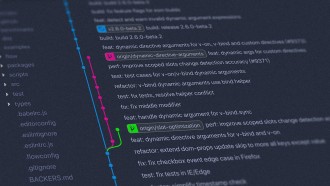Top US lawmakers introduced a detailed roadmap for developing artificial intelligence (AI) laws in the United States, signaling a crucial step toward addressing the opportunities and challenges posed by AI technology.
Led by Senator Todd Young (R-IN), Senate Majority Leader Charles Schumer (D-NY), Senator Mike Rounds (R-SD), and Senator Martin Heinrich (D-NM), the Bipartisan Senate AI Working Group released a comprehensive plan to guide AI policy in the Senate.
The roadmap reflects bipartisan efforts to ensure that the US maintains leadership in AI innovation while addressing concerns related to national security, economic impact, and societal implications.

(Photo : Gerd Altmann from Pixabay)
US Roadmap for AI Laws
Senator Todd Young highlighted the need for policymakers to foster AI's promising aspects while mitigating its risks, emphasizing the urgency of maintaining US leadership in AI innovation.
Senate Majority Leader Charles Schumer also underscored the importance of a collaborative approach in navigating the policy challenges posed by AI, engaging with a diverse range of stakeholders to identify areas of bipartisan consensus.
While various industries have always extensively used AI, its use has risen meteorically since the introduction of OpenAI's ChatGPT in 2022, triggering an ongoing AI race among tech giants.
Key policy priorities highlighted in the roadmap include increased funding for AI innovation to propel US leadership and competitiveness in AI research and development.
The roadmap also prioritizes enforcing existing laws governing AI to address biases, enhance transparency, and ensure accountability in AI systems—key issues that have been the recurring concerns of experts about the technology's rapid rise.
Workforce impact and reskilling are also crucial considerations, emphasizing the need to address job displacement and enhance worker skills to adapt to AI-driven transformations.
National security implications of AI adoption are also highlighted, emphasizing US leadership in emerging AI technologies while addressing associated threats and risks.
The roadmap also addresses challenges from deepfakes, focusing on election content, privacy concerns, and its effects on professional content creators and journalism. Support for AI innovation across higher education and businesses is emphasized, ensuring that institutions of all sizes can compete and innovate in AI technologies.
Read Also: Bank of America Institute Names the 5 Biggest AI Technologies to Date
Federal Data Privacy Framework
A robust federal data privacy framework is proposed to safeguard individual privacy rights amid the growing adoption of AI technologies. The roadmap also underscores the importance of mitigating potential long-term risks associated with AI deployment and adoption.
The bipartisan AI working group aims to collaborate with committees and stakeholders to advance legislation that aligns with the roadmap's key policy priorities, ensuring that the US remains a global leader in AI advancement and adoption.
"This roadmap represents the most comprehensive and impactful bipartisan recommendations on artificial intelligence ever issued by the legislative branch," Senator Young said in a press release statement.
"Our goal is to ensure the United States maintains its leadership in AI innovation, enabling the American people to reap the substantial national security, economic, and societal benefits of an AI-driven future."
Related Article: Google AI Search Criticized by News Publishers Over Concerns About Content Revenue






